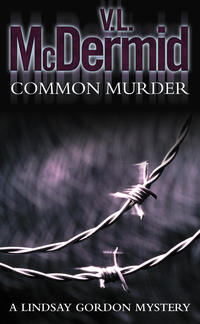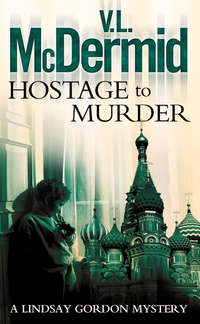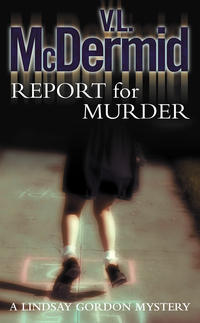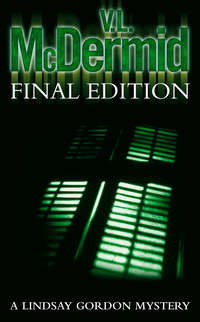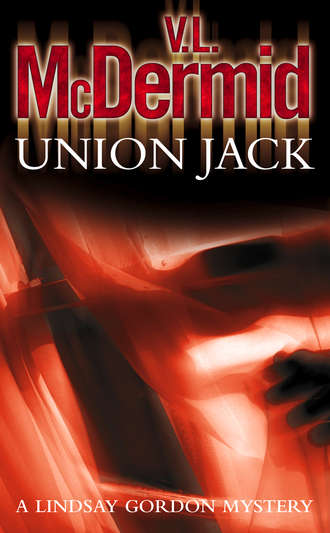
Полная версия
Union Jack
She emerged into the foyer of the Winter Gardens with a sense of relief. The large committee room had begun to feel unreasonably oppressive. Oblivious to her surroundings, she wandered down towards the stands of the assorted pressure groups who had rented space for the conference. She didn’t notice the chipped tiling on the walls, the scruffy paintwork or the garish posters for the forthcoming summer attractions. She paused long enough to buy an enamelled metal badge proclaiming ‘Lesbians and Gay Men Support the Miners’ before walking back into the stuffy hall to rejoin her colleagues.
No one glanced at her as she slipped into her seat. Only five others of the twelve-strong delegation from her branch were at the table. One of them was fast asleep, head pillowed on his arms. Another two were reading the morning papers. That left two who actually seemed to be following the debate. Lindsay shook her head. For weeks, every chapel meeting had been dominated by the impending annual conference. They had discussed their attitudes to motions, the importance of driving through certain policies, the crucial impact of decisions taken here in Blackpool. She’d spent the first morning taking notes on the debates and the results of the votes, until she had realised that she couldn’t see another soul in the hall doing anything with a pen except the Telegraph crossword. She could only assume that the real politicking was going on elsewhere, perhaps in those tight huddles that seemed to spring up all over the place every quarter of an hour or so. As she looked around, Lindsay spotted one of her own delegation coming away from a group clustered around the platform.
Lindsay watched Siobhan Carter, a feature writer on the Sunday Trumpet, weave through the delegation tables and wondered how long it would be before she understood what the hell was going on around her. Siobhan seemed to fit in perfectly, yet it was only her second time at conference. She flopped into the seat next to Lindsay and fanned herself with an order-paper.
‘Whew! It might only be the second day of conference, but there’s already enough scandal going the rounds to keep a clutch of gossip columnists going for a month.’
‘Is that what you’ve been doing? Gossiping?’ Lindsay asked.
Ignoring the note of censure in her voice, Siobhan giggled. ‘What else? You surely don’t expect me to listen to this boring load of crap?’
‘I thought that’s what we were here for,’ Lindsay said.
‘What? To die of boredom listening to some obscure, incomprehensible motion that’s only relevant to television journalists in the Republic of Ireland? No way! Listen, Linds, you stick with me. I’ll keep you on track. I’ll tell you when you need to be listening, okay? Trust me. I once screwed a doctor!’
Lindsay looked dubious. ‘I don’t know, I feel guilty if I don’t get involved.’
‘Fine. Get involved. But stick to the stuff that’s got something to do with you. I mean, tell me the truth. Did you enjoy SOS?’
Lindsay pulled a face. ‘Enjoy. Now, there’s a word. You’d need to have a mind more twisted than a corkscrew to get off on Standing Orders. I had to get out before my brain blew a fuse.’
‘Exactly. You’re getting the idea. And you missed a wonderful bit of goss while you were gone,’ Siobhan said eagerly, completely ignoring the passionate debate on the platform about whether the union’s perennially troubled finances could stretch to a major publicity campaign in Eire. Siobhan wasn’t the only one, Lindsay realised, glancing round the hall. She reckoned that less than ten per cent of the delegates even knew which motion was under discussion. Why should she join yet another minority group?
‘Tell me,’ she asked, putting Siobhan out of her obvious misery. ‘What have I missed?’
‘You know Jess, don’t you? Jess Nimmo, from Magazine Branch?’
‘How could I not?’ Lindsay said with feeling, recalling the braying upper-class voice that had dominated every meeting of the JU Women’s Caucus that she’d ever attended. ‘She thinks consensus is a head count the government takes every ten years.’
‘And you know Rory Finlayson, the Glasgow Broadcasting Branch heart-throb?’ Lindsay nodded. Everyone knew ITN’s Scottish correspondent, who gazed lovingly out of their TV screens several times a week on News At Ten. It was obvious to anyone who had ever encountered Rory in the flesh that his biggest fan was himself.
‘Well, Jess has been trying to get into Rory’s knickers for a million years now, just like half the other women in the country. And in spite of throwing herself under his feet at every available opportunity, she’d never managed to get him to pay her the slightest bit of attention.’
‘I suppose she’s no competition if there’s a mirror around.’
Siobhan giggled. ‘Nice one. Anyway, last night, she finally cracked it. They left the bar together about one, and they were last seen canoodling in the lift. End of scene one. Scene two. About half an hour later, Paul wakes up to the sound of someone banging on his door.’ Siobhan gestured with her head in the direction of their delegation leader, branch chairman Paul Horne, the thirty-something social policy editor of The Watchman, who was one of the handful absorbed in the debate.
‘So he gets up and opens the door,’ Siobhan paused for effect.
‘Yeah?’ Lindsay urged her.
‘And there, wearing nothing but a parka, is Jess. ‘I went for a pee and now I can’t remember what room Rory’s in,’ she wails and marches past Paul into his room. He’s completely bewildered by this apparition and by the time he gets his head together and follows her into the room, she’s helped herself to his bed, the parka’s on the floor and she’s telling him he’s got the choice of climbing in beside her or finding Rory.’
Lindsay’s mouth fell open. ‘You’re kidding!’
‘It gets better, believe me. It turns out she’s not even had a legover with the man of her dreams so she’s in an absolutely filthy mood. Poor Paul ends up getting dressed, going down to reception, finding out what room Rory’s in, trekking back up there and knocking on Rory’s door. Rory, of course, is spark out in a drunken stupor by this time, so he doesn’t answer his door. And by the time Paul gets back to his room, Jess is comatose in his bed. He can’t even go and take over Jess’s room because, of course, her keys are in her handbag in Rory’s room. So poor old Paul ends up spending the night in his armchair while Jess snores in his bed.’
‘She doesn’t snore, does she?’ Lindsay asked, glancing over at the Magazine Branch table where Jess sat, immaculate in a sweater so baggy and shapeless it had to have a designer label, black leggings and ankle boots. ‘I bet she’s even more pissed off about people knowing that than she is about missing a legover with the fabulous Finlayson.’
Siobhan giggled again. Lindsay had a feeling she was going to become very fed up of that giggle by the end of the week. ‘You’re not kidding. By the way, how’s Ian? Has he recovered from discovering the new love of Laura’s life?’
While she enjoyed the sharp savour of gossip about people she either disliked or knew only by reputation, Lindsay was less keen to dissect the private life of a friend as close as Ian. ‘He seems fine,’ she said stiffly.
Either Siobhan didn’t notice, or else she was in investigative journalist mode. ‘He must have been pretty demoralised to find he’d been replaced by a golden retriever. I thought at first it must be a guide dog. I mean, there must have been something wrong with her eyesight, fancying Ian enough to have lived with him all these years.’
‘That’s the trouble with you feature writers,’ Lindsay said. ‘You’re all so superficial. Image, image, image, that’s all that excites you. It takes a news reporter to penetrate below the surface and discover the truth.’ It was an old argument, but none the less attractive. It had the advantage of shifting the conversation away from Ian, and it kept the two women occupied until the end of the order paper.
‘Coming for a drink?’ Siobhan asked as they shuffled their papers together.
‘Tom Jack’s speaking at a fringe meeting,’ Lindsay replied, thinking that answered the question.
Siobhan looked horrified, then her face relaxed into a grin. ‘I keep forgetting it’s your first time,’ she said patronisingly. ‘I bet you still think fringe meetings are a vital part of conference business.’
‘They aren’t?’
‘They’re a distraction from the serious business of drinking and socialising,’ Siobhan told her. ‘Come on, let’s go and have a hair of the dog. Whoops, remind me not to say that to Ian!’ She giggled.
‘Thanks, but no thanks. He’s talking about how workforces cope when they get bought up by media buccaneers. Since we’re still reeling from being taken over by Carnegie Wilson, I feel obliged to go and see what Union Jack’s got to say for himself. God knows, he’s said little enough at the meetings in the office.’
Siobhan winked. ‘Say no more. I can read between the lines. You want to find out what he’s not been telling you guys, then you can slip a banana skin under the sexist pig at your next meeting.’
Before Lindsay could deny it, Siobhan had slipped away. With a sigh, Lindsay headed for the committee room. She still felt she had a duty to the colleagues she was supposed to represent. Like the rest of them, Lindsay was worried about her future following their recent invasion by the New Zealand media tycoon. As well as being the senior JU official at Nation Newspapers, Union Jack headed the loose federation of the seven different unions represented there. If anyone could speak from experience about the implications of takeovers, it was him.
The meeting had attracted a large crowd, unlike the previous lunchtime’s meeting where six women had gathered to hear a talk on ‘Media Language and Gender Bias’. Not surprisingly, more journalists were concerned about potential damage to their pay packets than about the pursuit of equality. By the time Lindsay arrived, all the seats in the small committee room were taken. She slipped down the side of the room and leaned against the wall near the front. Union Jack leaned against the edge of a table facing the room. Shanti Gupta, one of the two candidates running for JU vice-president, was already introducing the meeting, her strong voice rising above the desultory chatter of the audience.
‘Brothers and sisters, I don’t need to remind you of the dangers we face at the hands of asset strippers and fast-buck merchants who pin their dreams of profit to the rise of new technology at the expense of the health and welfare of their workers,’ she said, scarcely pausing for breath.
‘Tom Jack, the National Executive member for national newspapers, has recently had firsthand experience of negotiating with one of the new breed of newspaper proprietors, the profit pirates, the men who care more about the bottom line on their balance sheets than they do about their readers. We can all learn from the experiences of Nation Newspapers, and there’s no one better equipped to teach us than Tom.’ Shanti stepped back and gestured towards Union Jack. ‘Over to you, Tom,’ she said, sitting down behind the table.
Tom Jack pushed himself upright and fixed the audience with his burning brown eyes. His thick brown hair was brushed back from his high forehead, and his full beard almost obscured the collar of his Tattersall-check shirt and the knot of his tweed tie. He looked slowly round the room, as if committing every face to memory, slotting them into his mental filing cabinet till he was ready to take them out, scrutinise them, temper them in the fire and lead them to glory like some irresistible nineteenth-century zealot. He thrust one hand into the pocket of his moleskin trousers, and started to speak. His voice was deep, intense and unmistakably Yorkshire.
‘Colleagues,’ he intoned. ‘We’re facing the biggest threat to our journalistic livelihoods that I can remember. I know you’ve heard that before, and probably from me, but nevertheless, I’m not a man given to crying wolf. Shanti here has raised the spectre of new technology, and I’m here to tell you that the combination of Tory government policies, new technology and proprietors who understand nothing of the proud traditions of British newspapers could mean the end of our working world as we have known it. All the benefits we have struggled to bring our members could be lost like that’ – he snapped his fingers like the crack of ice hitting gin – ‘unless we pick our ground carefully and fight to win.’
The speech continued in predictable vein. The audience were exhorted to hold firm to their hard-won agreements on pay, conditions, and redundancy; to stand up to their new proprietors and show them who really ran the newspapers; and not to concede so much as a matchstick of dead wood to new technology. The rounds of spontaneous applause that greeted Union Jack’s cries to arms astonished Lindsay. It was a long way away from the stony silence that he’d had to face when he returned to office meetings with news of yet more concessions that Carnegie Wilson’s henchmen had wrung out of him. It was easy to see there weren’t many Daily Nation staff members at the meeting.
With an unobtrusive glance at his watch, Tom Jack wound up. ‘At the end of the day, we’re the ones with the ink in our veins. We know how newspapers work. Carnegie Wilson made his millions out of butchering sheep, and he’s found out the hard way that we’re no lambs to the slaughter. Carnegie Wilson and his like have to bow the knee to us, because without us, newspapers can’t exist. We have to remember, colleagues. They’ll never invent a machine that can knock on doors or comfort a grieving widow. They’ll never invent a machine that can persuade governments to change the law. Whatever the Carnegie Wilsons of this world would like to think their fancy computers can do, we have to remind them again and again, day in and day out, that without us, they have nothing to show for their millions of pounds of investments.’
It was a rousing finish, and some people even stood as they applauded Union Jack. Lindsay looked around and noticed with interest that Ian Ross and a handful of other Daily Nation journalists had not joined in the frenzy of applause. Tom held his hands up in the air, accepting the plaudits. As the applause continued, she remembered a rumour Ian had mentioned in the car. The JU’s long-serving National Newspaper Officer had suffered his second major heart attack the day before conference began. The word was he would be offered early retirement and the obvious man to step into his shoes was Tom Jack. He’d filled every significant post open to part-time lay officials. There was nowhere left for his ambition to go unless he moved into a full-time paid official’s job that could lead one day to the top job of them all – general secretary. Lindsay wondered if she’d just heard the first speech in an election campaign.
Tom sat down next to Shanti, who patted him on the shoulder as the applause finally died away. ‘I know some of you may have questions for Tom,’ she said. ‘We have ten minutes left …’
A couple of the audience had clearly been primed with questions that managed to make Tom look even more statesmanlike than his speech already had. Disgruntled, Lindsay pushed herself away from the wall and stuck her hand up. Shanti nodded to her, after a quick glance at Tom, whose eyebrows lifted in acquiescence. Clearly he expected no trouble from one of his own flock.
‘What advice can Tom offer to other chapel officials to help them avoid losing the ground we at Nation Newspapers have already lost? I refer specifically to the fifty per cent reduction in maternity leave, the cut in holidays from eight weeks to seven, the ending of time off in lieu for overnight stays away from base, and the freezing of expense allowances at 1982 levels.’ She could see Tom’s eyes narrow and his thick eyebrows descend, but she carried on. ‘As far as I’m concerned, that is a lot more than the thin end of the wedge.’
Tom was on his feet, all traces of his momentary anger gone. His voice was conciliatory, aimed at the expressions of uncertainty that had appeared on the faces of some of his audience. ‘Colleagues, Lindsay’s making a point here that none of you can afford to ignore. And that point is that even with a strong chapel and experienced negotiators, you have to give a little ground. But against that, we have to weigh the fact that I personally sat across the table from Carnegie Wilson and persuaded him to drop his plans for ten per cent redundancies across the board at Nation Newspapers. We also now have a deal that no element of new technology will be introduced without a fully negotiated agreement between management and workforce.’ He was blustering now, desperately trying to make it look as if he hadn’t rolled over like the lap-dog Lindsay suspected he was. She could imagine only too well the ‘good old boys’ atmosphere of the negotiations, and the amount of alcohol that had flowed to ensure good working relationships.
As he carried on trying to win his audience back, Lindsay pushed herself away from the wall and walked out in disgust. Her departure made her point more forcefully than her words, but she was past caring about the effect. She wandered back towards the main concourse, desperately wishing Frances was only a phone call away.
She had reached the door of the conference hall when she was stopped by a member of the JU Women’s Caucus, canvassing support for some motion or other. Absently, Lindsay listened to the familiar litany, nodding non-committally when some response seemed to be called for. She was shocked back to full attention by a heavy hand clamped on her shoulder and Tom Jack’s voice in her ear. ‘Just whose side are you on, Lindsay Gordon?’ he asked menacingly.
Lindsay looked over her shoulder. Tom was flanked by a handful of his sidekicks. Ian was hovering on the edges of the bunch, trying to work his way round to her. She spoke softly, so her words wouldn’t carry farther than their small group. ‘Keeping the truth from people doesn’t solve anything, Tom,’ she said wearily. ‘It tends to filter through in the end. Then what people will remember is that you bull-shitted them over your deal with Wilson.’ She would have said more, but Ian put a warning hand on her arm.
‘You’re too bloody smart by half. You should remember whose side you’re on. Leave playing devil’s advocate to that fancy lawyer you’re shacked up with. You’ve been spending too much time listening to Miss Frances Collier.’
Lindsay felt suddenly light-headed. Tom Jack’s mouth carried on moving, but she could hear nothing. It was as if a glass bubble had enclosed her, cutting her off from the world around her. Without a word, she pulled away from his restraining grip and pushed through the group of men behind him.
As she began to run down the hall, the wall of silence shattered and she heard Ian Ross shout at Tom Jack, ‘You stupid, insensitive bastard. You’re about as out of touch as you’re out of order. Don’t you know anything about your chapel members? Frances Collier died six weeks ago. How could you not know that?’
3
‘An inevitable consequence of the volume of work demanded of conference delegates is that they will suffer from a lack of sleep as conference week progresses. In order to avoid feeling like dead dogs, we recommend you bring a substantial supply of Vitamins C and B Complex as well as the painkiller of your choice.’
from ‘Advice for New Delegates’, a Standing Orders Sub-Committee booklet.
The shingle crunched beneath Lindsay’s feet as she charged headlong down the beach. At the water’s edge she stopped, her chest heaving for breath, her eyes stinging with unshed tears. She stared out at the grey Irish Sea, glad of its bleakness. Recovering herself, she squatted down to make herself a smaller target for the sharp northerly wind. She pulled a crushed packet of cigarettes out of her pocket, straightened one out, cupped a hand round her lighter and inhaled deeply. In spite of the cancer that had taken three months from its diagnosis to kill Frances, Lindsay still couldn’t bring herself to quit. Most days she felt only the nicotine and the caffeine were holding her together.
Three hellish months, trying to come to terms with the one adversary that wouldn’t accept anything other than total surrender. Three months watching death inch closer and closer to the woman she loved. Three months trying to accept the unacceptable. Then that last week, when Frances was beyond words, beyond the defiance that had insisted on Lindsay’s rights in the face of her intransigent family. They had done what neither life nor cancer could; they had separated Lindsay and Frances. When the news finally came, it had been from one of the workers at the hospice. At the funeral, Lindsay had stood apart, flanked by a couple of close friends, the ultimate spectre at the feast. That had been five weeks ago, and nothing was getting any easier.
She dragged the last lungful of smoke out of her cigarette and flicked the stub into the waves. Moments later, she jumped with shock as a warm wet tongue licked her ear. Lindsay straightened up, nearly toppling over in the process, and stared down at a golden retriever, tongue hanging out, shaggy coat dripping with salt water, tail wagging amiably.
A breathless voice behind her called, ‘Becky! Come here.’ Lindsay turned to see Laura bearing down on her. The dog didn’t move. ‘Oh, Lindsay, it’s you. I’m sorry, she thinks everybody was put on the planet to play with her.’
‘No problem. I was miles away, or I would have heard her.’ Lindsay reached down and fondled the dog’s damp, silky ears. ‘She’s a beauty,’ she added rather stiffly.
‘I couldn’t resist her,’ Laura admitted. ‘She belonged to a friend of mine who was transferred to Brussels. Of course she couldn’t take Becky with her. She was about to advertise for a good home for her when … well, when my circumstances changed and made it possible for me to have her. But then, I suppose you know all about that,’ she said in tones of resignation.
‘I just don’t understand how you could do that to him,’ Lindsay said in a much cooler tone than the dog had been granted. She studied Laura, speculating how much time it took in the morning to shape that flowing crest of chestnut hair, and how much of the problem with the ozone layer could be laid at the door of her hair spray. Even walking the dog on Blackpool beach, Laura had managed to achieve an air of elegance that Lindsay would have been hard pressed to match at a formal dinner.
Laura raised her perfectly shaped eyebrows. Beneath them, her eyes were wary. ‘So he’s been discussing our private business with all and sundry,’ she said coldly.
Lindsay felt the colour rise in her cheeks. ‘You screw around with someone else behind his back and you expect him to keep his mouth shut for the sake of your reputation?’
Laura took a startled step back. ‘He told you that?’
‘He had to talk to someone, Laura. And in spite of what you think, I’m not all and sundry. Ian’s my friend, and as far as I’m concerned, what you did to him is a shit’s trick. And on top of it all, to turn up with Becky in tow, when you of all people know how allergic he is to dogs. What a slap in the face! You couldn’t have made it clearer that you’ve no intention of trying to sort things out with him.’
Laura ground the heel of a brown boot into the shingle. When she spoke, her voice was harsh. Not for the first time, Lindsay wondered at the capacity betrayers have for anger against the betrayed. ‘There wasn’t any going back from the moment he threw me out. He left me in no doubt about that. He wasn’t interested in my explanations, so why the hell should I kid myself?’
Lindsay looked up at the beautiful face, clenched tight in an expression of bitterness. Then, suddenly, it was gone, and the Laura Craig cool mask was back in place.
‘Well, I hope he’s worth it,’ Lindsay said harshly.
She turned away, giving the dog a final pat and strode up the beach as fast as the shingle would allow. She didn’t grant Laura a single backward glance.



